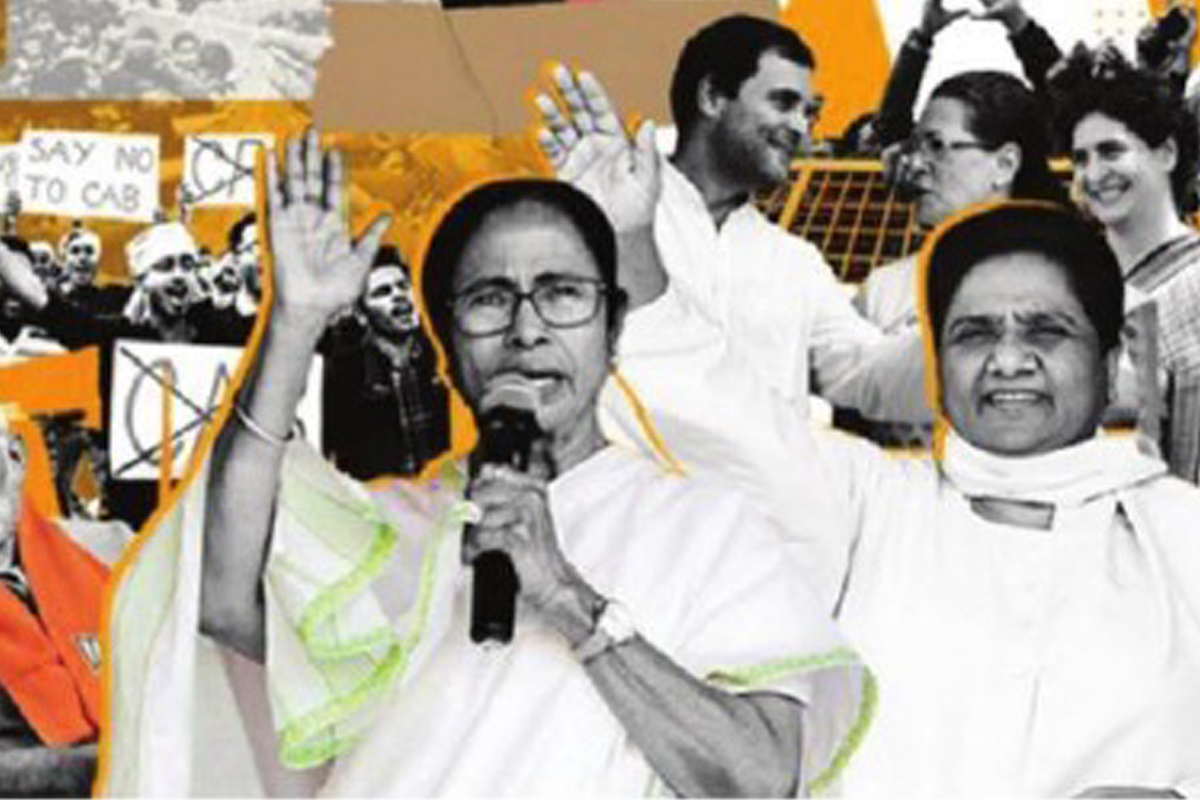Assam CM denies Chakma-Hajong relocation amid citizenship discussions
There are more than 67,000 Chakma and Hajong tribals residing in Arunachal Pradesh who are not eligible for permanent resident certificates or citizenship in the state.
Telangana chief minister K Chandrashekar Rao’s TRS voted against the legislation, but he is silent on NRC.

(SNS)
Nobel Laureate Amartya Sen was right when he observed recently, “For any kind of protest, opposition unity is important. Then protests become easier. Unity is important if the protest is for a proper cause.” He was referring to the ongoing agitations against the CAA and NRC in the country. “ If unity is not there still we have to move on and do whatever is necessary,” Sen added.
Obviously lulled by the mute protests in the rest of the country after the abrogation of Article 370, the Modi government did not expect such a spontaneous surge of opposition from all walks of life. But what is lacking in the present anti-CAA movement is indeed lack of opposition unity. Many opposition parties have declared that they are opposed to the twin measures but they are unable or unwilling to come together on a common platform in organising pan-national protests.
The present movement is slow in clicking because of their individual egos, lack of common interest, personality clashes as well as the absence of a tall leader who could unite the opposition parties. Now that the Parliament session is round the corner, we will have to see how the opposition takes it forward. The Modi government expects the agitation to fizzle out after the Delhi elections while the opposition hopes it will pick up. Interestingly, the protests are organised at three different levels.
Advertisement
The students are in the forefront after what happened in Jamia and Jawaharlal Nehru universities and elsewhere and they have support from many student communities in the country. How long the students can continue their agitation is not known. The major political parties including the Congress, while supporting the students from behind, are fearful of joining them upfront for fear of being accused of being pro- Muslim.
At the second level, civil society groups, NGOs and intellectuals have jumped in to question the measure. They are the ones whose advocacy skills are exhibited in TV studios and public discourses. At the third level remain the opposition parties, which are divided even as the BJP accuses them of instigating the violence. What is worse is that the entire political class is trying to utilize the religious divide created by the CAA for their own vote bank politics.
This is true of the Congress, the Left parties, the regional parties and even the BJP. With elections to Delhi next month and Bihar later this year, it has taken a political colour and will remain an electoral issue pushing all other bread and butter issues to the backburner for some time to come. Look at the way the opposition parties have behaved so far.
A galaxy of opposition leaders including Rahul Gandhi, Mamata Banerjee, Sitaram Yechury and others attended the swearing-in ceremony of Jharkhand chief minister Hemant Soren recently. But this show of unity is not being taken forward. Congress President Sonia Gandhi convened a meeting to strategize the protests against the CAA on 13 January but it was attended by only 20 opposition parties while prominent parties like the Trinamool Congress, Samajwadi Party, Bahujan Samaj Party, Telugu Desam Party, Dravida Munnetra Kazhagam and Aam Admi Party did not participate. BSP stayed away because of the Congress poaching on its MLAs in Rajasthan.
The Samajwadi party also kept out. The DMK is reportedly upset with the state Congress leaders for criticising it in the media. Shiv Sena and AGP voted for the bill but seeing the mood, they have changed their stand now. Though the JD (U) voted for the CAA, its chief Nitish Kumar is now opposed to the NRC. AIMIM of Asaduddin Owaisi, who tore the Bill in the Lok Sabha during the debate, is not participating in street protests. Andhra Pradesh chief minister Jagan Mohan Reddy, whose YSRCP voted for CAA, will not allow NRC in his state.
Telangana chief minister K Chandrashekar Rao’s TRS voted against the legislation, but he is silent on NRC. Such is the fragile nature of opposition unity! The Supreme Court has come into the picture and has declined to stay the implementation of the law but the hearings will go on. The federal structure is under strain as clearly the state governments passing resolutions or issuing statements saying they would not implement the CAA are being political.
They can resort to “non-cooperation” with the Modi government until the Supreme Court settles the debate. As a national party, the Congress has to play the leadership role as the rallying point for the Opposition. But as the regional powers have asserted themselves in many of the states, they will be a big factor in deciding the role the Congress would play. The resurgence of a strong and united Opposition needs a focussed pan-India issue. The CAA as an issue may be strong but the movement lacks a strong leadership and united opposition.
Advertisement